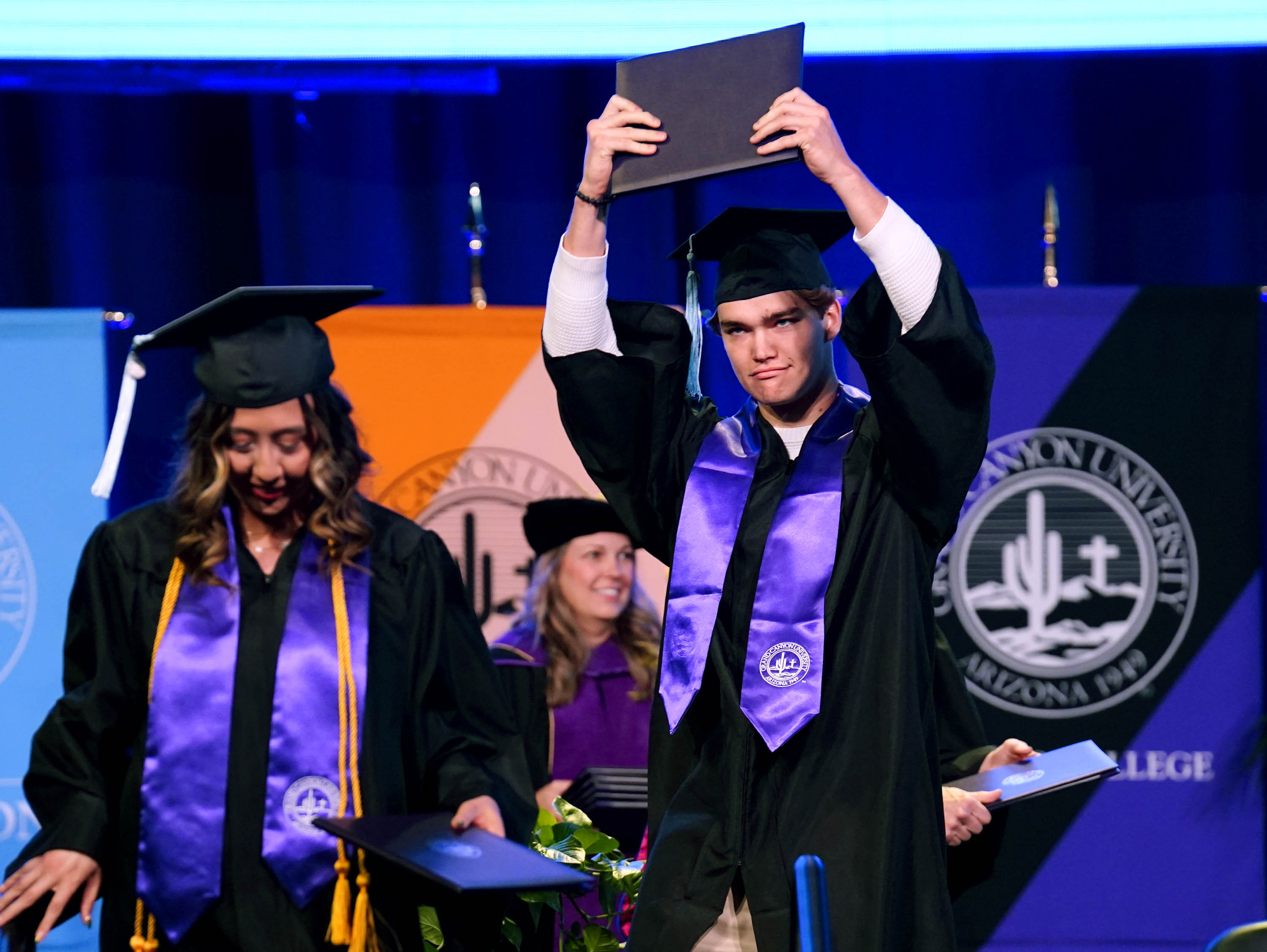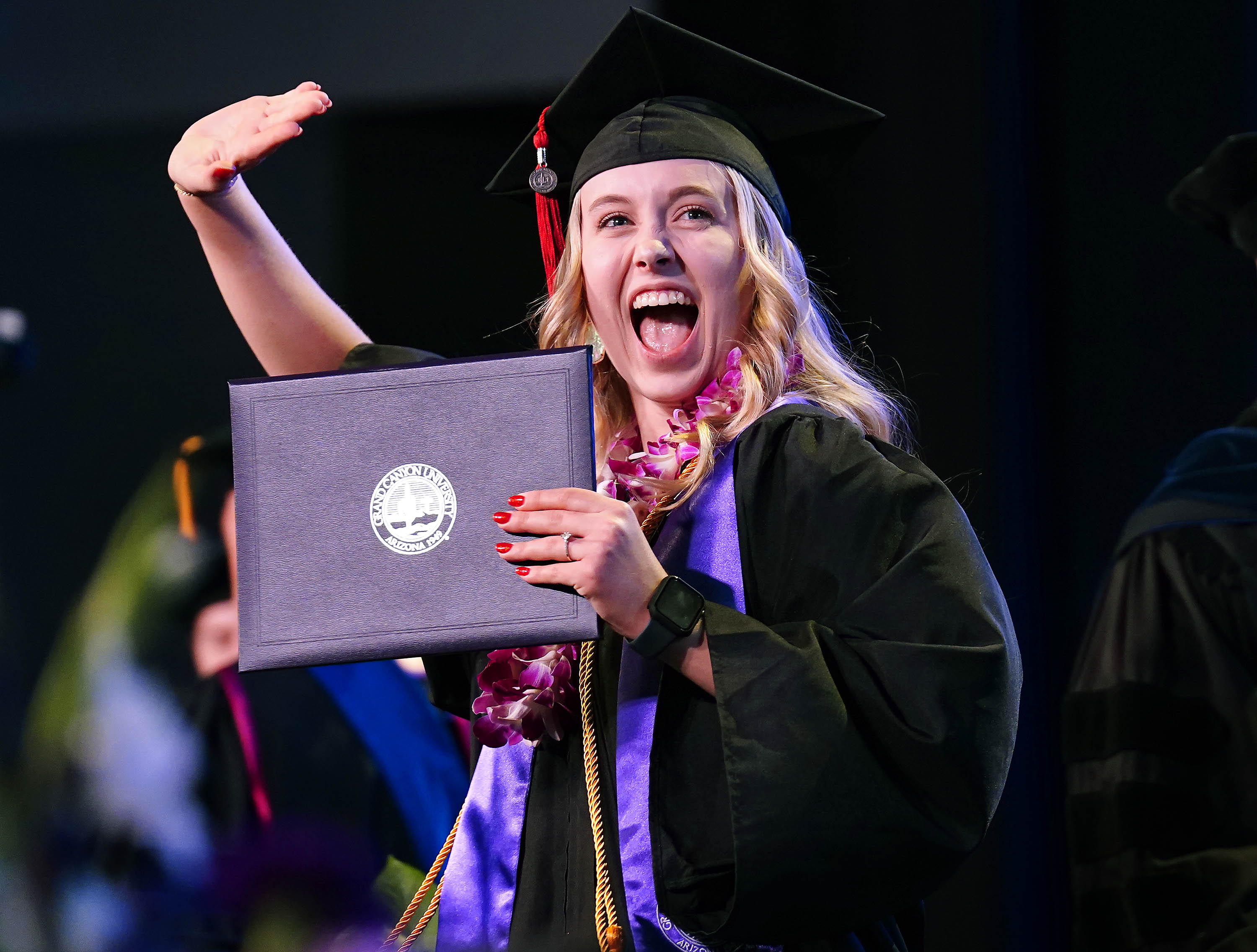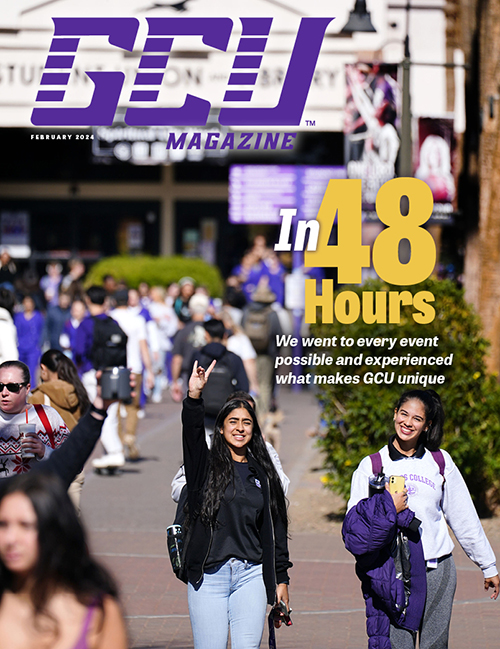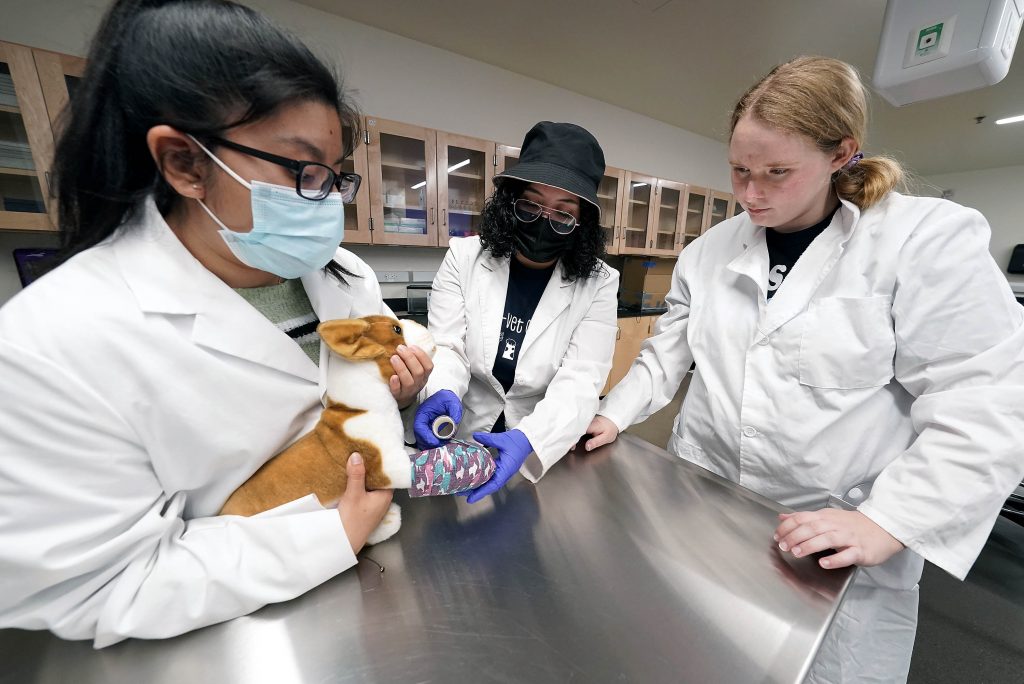
Story by Lana Sweeten-Shults
Photos by Ralph Freso
GCU News Bureau
It’s not raining cats and dogs when it comes to open spots at veterinary schools. With only 30 accredited colleges of veterinary medicine in the United States, the competition for one of the 2,700 available seats in those programs is fierce.
“Veterinary school is considered more competitive and more difficult to get into than medical school,” said Grand Canyon University ecologist and biology/environmental science professor Rachel Pikstein.
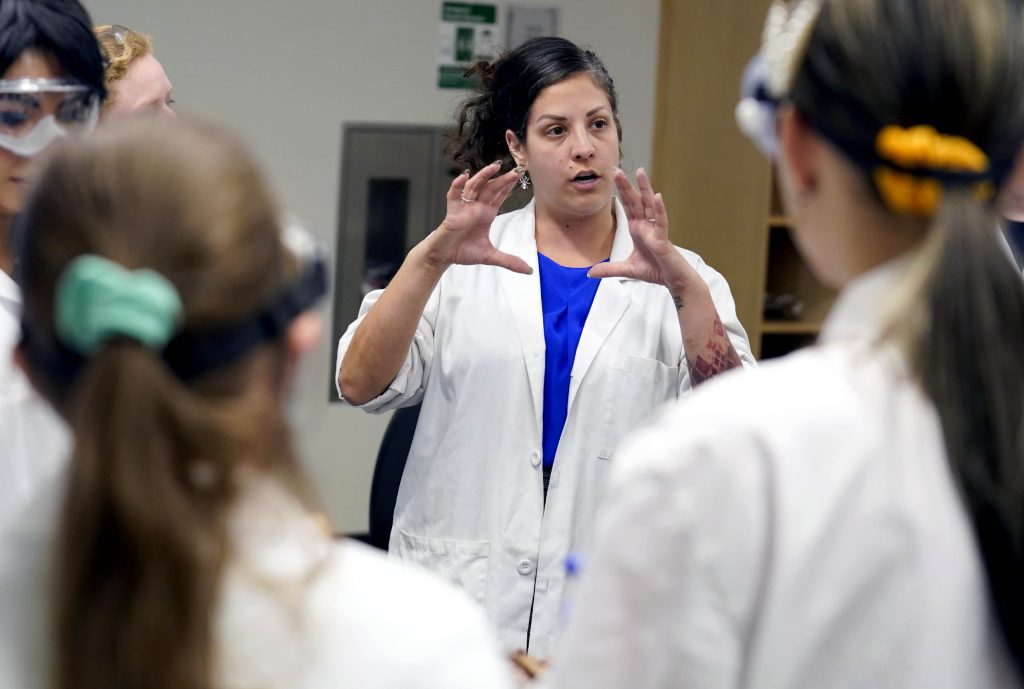
But GCU’s students consistently land spots in those colleges. Four alumni are digging in their heels in programs at Washington State University, Colorado State University and the University of California-Davis.
Kyla Chavez and Briana Muñoz, the latest to get accepted, sharpened their veterinary skills as officers in the campus’ Pre-Vet Club — Chavez was secretary until her graduation in December, and Muñoz is vice president. Now they’ll be heading to Midwestern University’s College of Veterinary Medicine together in the fall, while another recent grad, Madison Johnson, has been accepted to multiple schools and is weighing her options.
“I was super excited when she (Briana) told me she got in, because I’ll know somebody there. We’ve been friends at GCU since we started together,” said Chavez, who also was an Honors College student and secretary/treasurer of the Alpha Chi National Honor Society.
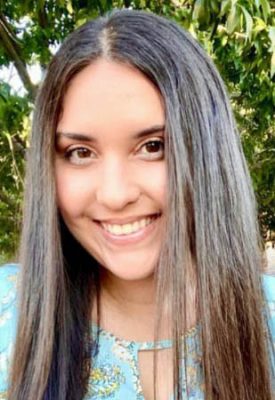
Like other GCU students with ambitions to go to vet school, Chavez and Muñoz took the initiative to create their own paths at the University to reach their career goals.
The College of Science, Engineering and Technology does not yet offer a pre-veterinary major, so most vet students major in biology with an emphasis in pre-medicine, then add animal science classes, such as Fundamentals in Ecology (launched by Pikstein in 2017) and Animal Behavior and Vertebrate Zoology (launched by Dr. Sandy Bledsoe in 2019).
One of the steps on that path has been Pre-Vet Club.
“When I came to GCU, I told my counselors and professors that veterinary medicine was what I wanted to do. None of them knew that Pre-Vet Club existed,” said Chavez, whose pets include everything from a blue-tongued skink to a tortoise, parakeets, chameleon and hedgehogs. “I found out about the club my second year, actually. I just don’t think it gets talked about as much as the Pre-Medical Society or the Anatomy Club.”
It was one of the best discoveries Chavez could have made.
“It’s just a really cool club,” added Muñoz. “We do a lot of hands-on activities. Like a few weeks ago, we taught people how to draw blood and how to place a catheter in little dummy arms, so it was really fun just to be able to learn more and educate others about the things we do in that club.
“I absolutely love it.”
Hands-on experiences
What students also loved was the buzz at a recent Pre-Vet Club meeting.
About a dozen students gathered around a lab table, where president Peyton Gadbery, who discovered the “under the radar” Pre-Vet Club on the GCU Engage app her freshman year, navigated around a canine cadaver that she and two other students have been dissecting.
Club advisors Bledsoe and Pikstein select a few students to work on a dog dissection each year to make them even more vet school viable.
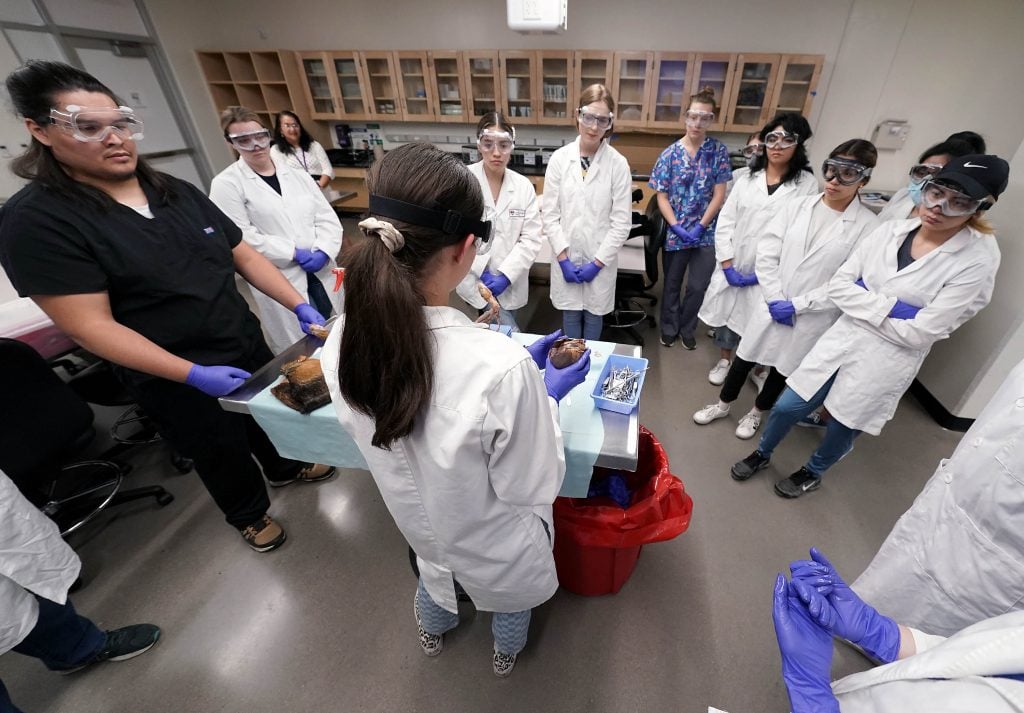
“There’s no substitute for that eye-hand coordination, using the instruments, all of that,” Bledsoe said. “Tissue handling is not something you can teach somebody — you have to do it.”
Students also meet to hear speakers and sharpen their skills at suture clinics.
“What I like the most about it is having like-minded individuals,” said club treasurer Aaron Aguirre, who just landed an internship at Reid Park Zoo in Tucson thanks in part to a reference from Pikstein and his involvement in her Research and Design Program (RDP) groups.
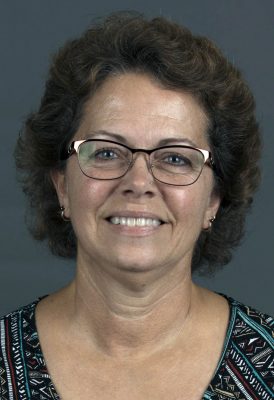
As the campus’ sole veterinarian, Bledsoe said she gets a lot of questions from students about what it’s like to be a vet, what it’s like in vet school, where they should apply. “I’m happy to answer them.”
While Bledsoe’s background is in cats and dogs, Pikstein, as a researcher and animal husbandry specialist in reptiles and other exotics, adds a little something different.
“The two of us brought in a flavor together where we can really give them the experience,” Pikstein said. “We just work really well together.”
Bledsoe said she and Pikstein try to continually provide information, support and opportunities through such groups such as the Pre-Vet Club.
She added, “The difference is trying to provide as many hands-on experiences as we can.”
Student research
One of those experiences is RDP. Over the last four years, more than a dozen RDP and Pre-Vet Club students have been mentored by Bledsoe and Pikstein, including Chavez, Muñoz, Aguirre and Gadbery.
Although Chavez has graduated, she still is involved with two projects in Pikstein's RDP group -- the EMOMA Project, which looks at how snakes are able to resist muscle atrophy, and the GEATI project, which is trying to understand how Florida's tegu lizards diversified as they went from a captive to invasive species.
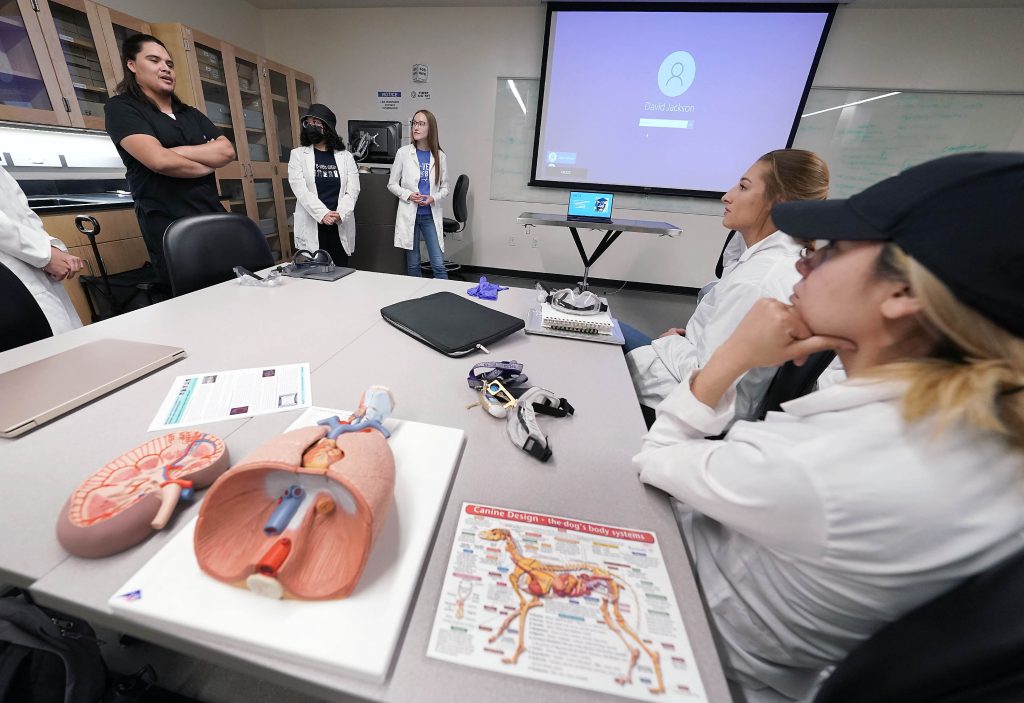
Chavez will travel with Pikstein and Gadbery this summer to work with Texas Christian University conservation geneticist Dr. Dean Williams on a paper the team hopes to publish this year.
Muñoz, who’s also a resident assistant, honed her skills on two of Pikstein's RDP projects, the BEFTA project, which focuses on Indonesian plants affected by the palm oil industry, and the COILER project, which utilizes COI (color overlap index) technology to analyze camouflage adaption reliance in desert snakes to improve relocation efforts that address urban snake conflict.
“A lot of the things they asked me about (in vet school interviews) was my experience,” said Muñoz, who referenced RDP, her volunteer work and internships.
A zoo or two
“We’re very fortunate to be located where we are, because we have all sorts of opportunities like zoos, an aquarium and several rescue organizations our students do volunteer at,” said Bledsoe, who along with Pikstein has built relationships with such organizations and guided students toward those opportunities.
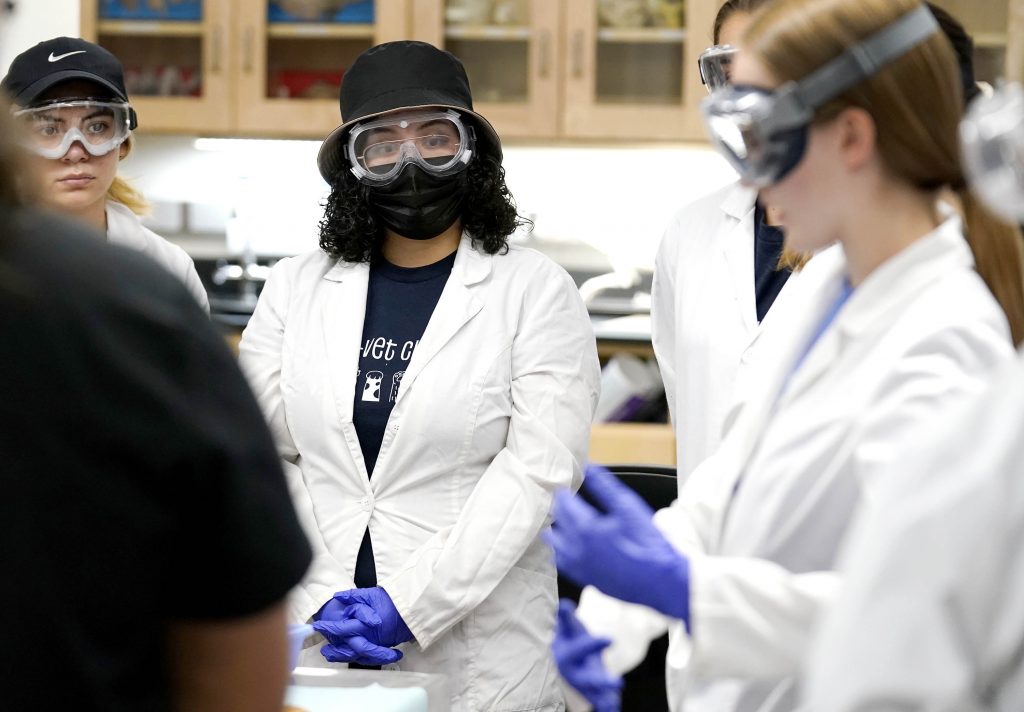
Muñoz worked with large animals at the Phoenix Zoo for five years and interned at the Wildlife World Zoo. She also is a tech assistant at a local exotic animal hospital: “The other day, one of the doctors did a blood draw on a koi fish. I didn’t even know you could do that,” she said with a laugh.
Pikstein said, “What I always tell students is clubs and RDPs are the sprinkles. Your education is the cake, and your experience — your jobs, your internships — are your frostings. Your sprinkles aren’t good if your cake is made of mud, right? So you’ve got to have a strong foundation.”
Students who stir in those ingredients are the ones who have success, Pikstein said.
“Most of them get into their top-choice school. I think it’s because they follow that recipe,” she added.
Muñoz and Chavez credit mentors Pikstein and Bledsoe for helping them reach their goals.
“My professors were definitely very helpful, and the small class size really makes a difference,” Muñoz said. “You can develop a lot of personal relationships and professional relationships with your professors. My research professor, Professor Pikstein, was able to go above and beyond in making sure we had everything we needed,” including letters of recommendation.
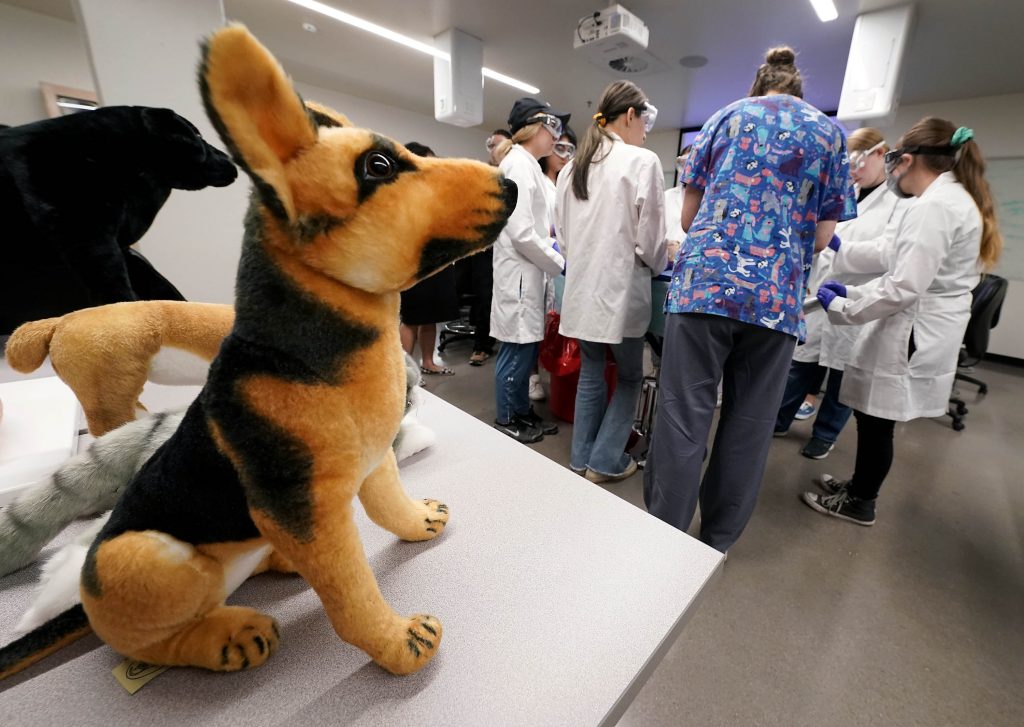
Bledsoe and Pikstein turn out strong letters of recommendation for their students and serve as references for other building-block opportunities, such as Aguirre's role with Reid Park Zoo.
Beyond that, they continue to develop animal science courses. They also are starting a partnership this fall with Country Gardens Charter School in Laveen, utilizing the charter school's ZooQuarium and Barnyard programs for hands-on training and animal husbandry and veterinary care. They have planned more off-site experiences with animal experts around the Valley, and Bledsoe is in the initial steps of creating a pre-vet degree program.
Chavez and Muñoz, with their foot in the door at veterinary school, where so many students are turned away, are grateful to have had all the experiences they did — experiences that opened that door for them, even though it’s not exactly raining cats and dogs.
GCU senior writer Lana Sweeten-Shults can be reached at [email protected] or at 602-639-7901.
****
Related content:
GCU Today: GCU student researcher accepted to top grad school
GCU Today: Trio takes Forensic Science's unity to the next level
GCU Today: Save the rainforest? GCU plant researchers may help
GCU Today: Owl conservation team hatches new nest box design
GCU Today: GCU team scales extensive tegu lizard study

